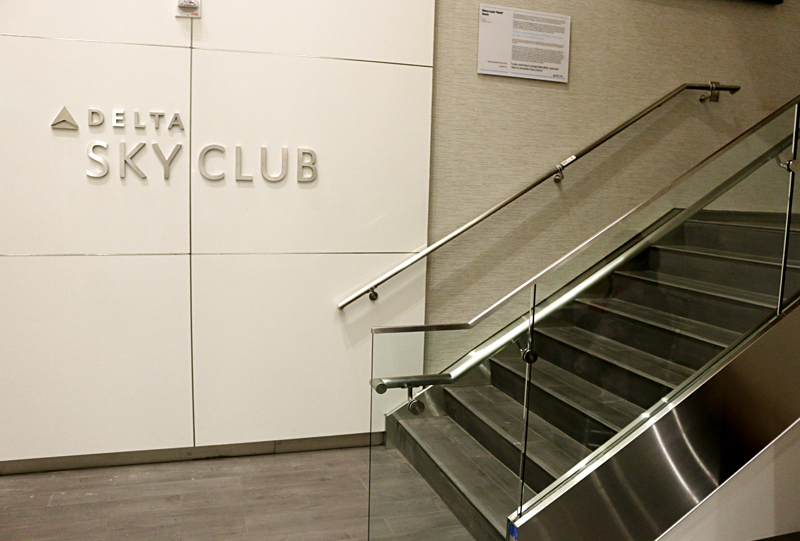From licenses for drivers issued by state governments to portable electronic devices, the use of biometric technology has significantly increased in recent years…
Biometrics: Better Travel — With a Threat to Your Privacy?
…and travel in general is no exception, as in an effort to continue to improve the customer experience, an announcement from Delta Air Lines officially proclaimed that members of Delta Sky Club who are also members of CLEAR can use their fingerprints to enter all 50 Delta Sky Club locations in the United States beginning this week.
Delta Air Lines is the only global airline based in the United States to offer customers a secure biometric check-in option at a single touch point across its domestic network; and using biometric technology to gain access to a Delta Sky Club is offered at no extra cost — and members are not required to use it, as it is an option.
CLEAR is the leading biometric identity platform in the United States which uses fingerprint and iris identification technology at airports and sports stadiums across the United States.
What is Biometrics — and Is It Secure?
Biometrics is a technology which calculates and measures characteristics of the human body for identification and authentication purposes in order to control access. Fingerprints and eye scans are only two examples of ways to identify eligible people in order to grant them access to sensitive information or secure locations. Because no two people have exactly the same characteristics — such as fingerprints, which are unique to each person — biometrics is considered one of the more secure technologies…
…but whether or not the increased use of biometric technology is a positive trend depends on who is asked that question.
“Identity theft, fraud and terrorism are real problems”, according to this article from Scientific American, which claims that biometrics security poses huge privacy risks. “Used properly, biometrics could help protect against them. But the potential for misuse is glaringly obvious. We must begin setting rules to govern the use of these technologies now.”
That article was written almost four years prior to the widespread scandal which revealed that Equifax — which is a consumer credit reporting agency based in Atlanta — may have compromised the sensitive financial and personal information of as many as approximately 148 million people due to a careless breach of security which occurred last year…
…and you can now find out whether or not you were affected by that breach of security by clicking here.
By the way, have you heard anything about Equifax lately in the news? The scandal seems to have dropped off the face of the earth — but you can access updates as of March of 2018 for further details as to the latest information pertaining to this scandal.
Although Equifax does not use biometric technology to identify consumers, it is supposed to be entrusted to keep the financial information of hundreds of millions of people as secure as possible — and if they callously failed to do so, what guarantee would we have with biometrics being any more secure?
Summary
“Those who would give up essential Liberty, to purchase a little temporary Safety, deserve neither Liberty nor Safety” is a quote often attributed to Benjamin Franklin.
Based on that statement, I am personally not convinced that biometrics is the way to go, as I do not support the idea of voluntarily giving up what little privacy I may have left in this world in order to purportedly keep sensitive information about me more secure. I am also skeptical that biometrics will work 100 percent of the time as intended. What will happen when things go wrong — such as a technological glitch which could prevent the biometrics from working properly and denying you access to what you either want or need?
I intend to write an article in the future which delves more into biometrics and its use in travel in general — and yes, I get the argument that much of our privacy is already compromised these days — but I am curious as to your opinion, which I hope you will post in the Comments section below. Would you embrace biometric technology at the expense of risking the privacy of yourself and your sensitive information?
Photograph ©2016 by Brian Cohen.

